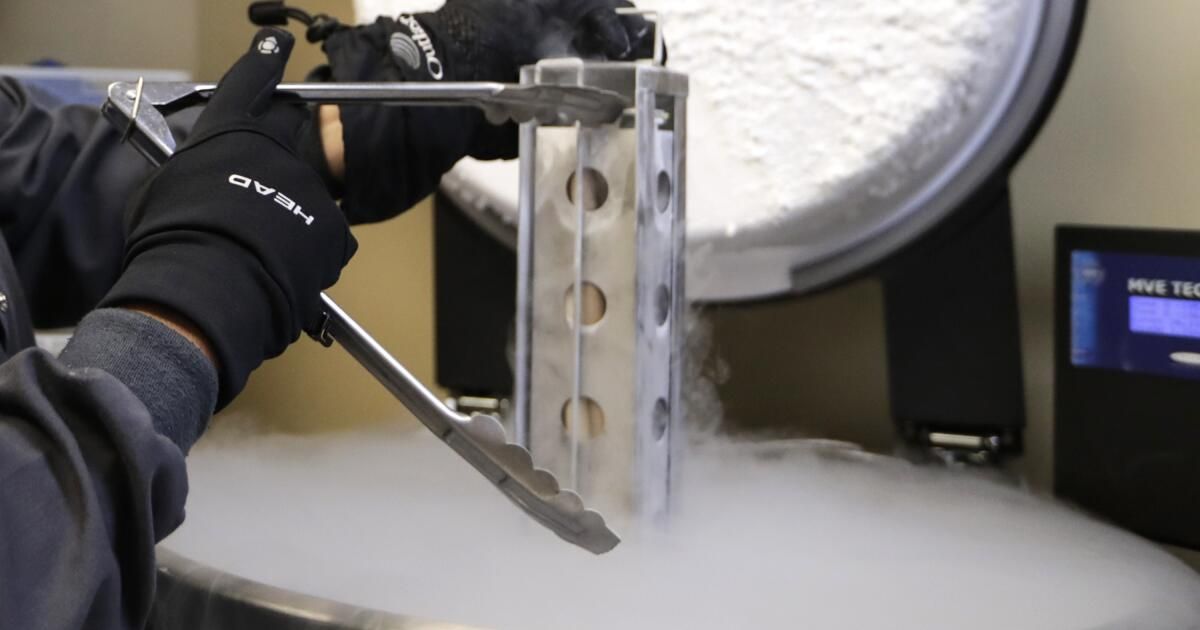To the editor: It's disturbing when people pass laws on topics they don't understand. With fertility treatment in particular, there are many things you can't know unless you experience it. (“'What is this, 'The Handmaid's Tale'?' Exploring the moral questions raised by the controversial IVF ruling,” February 27)
Two decades ago, my husband and I had 12 frozen embryos. One of the reasons people acquire so many eggs during retrieval is to increase the chances of an embryo developing into a real child.
Due to past losses, our doctor, an expert in the field, suggested that we thaw all of our frozen embryos for pregenetic testing and implant only the “viable” ones, that is, those with the best chance of becoming people.
Of 12 frozen embryos, only two were viable. The other 10 had no genetic material or had chromosomal abnormalities.
So, were we murderers of 10 blobs of non-living cells that never had a chance to live? I do not think. And, by the way, the two viable embryos that were implanted also failed to become living people, unfortunately.
Therefore, pontificators who declare that embryos are children need to better understand the reality of what a frozen embryo is, and its real chances of becoming a person, before formulating policies.
Kathi Weiner, Dana Punto
..
To the editor: In his letter to the editor, Dr. W. Benson Harer Jr. asks whether treating a life-threatening ectopic pregnancy is tantamount to murder. He may not be familiar with the principle of “double effect,” as promulgated by Thomas Aquinas, the Catholic philosopher.
The purpose of terminating a fallopian tube pregnancy is to save the mother's life; It is not to kill the child. There is no malice in the act and the purpose is good: to save a life.
Alex Lozano, North Fort Myers, Florida.












